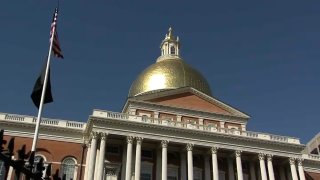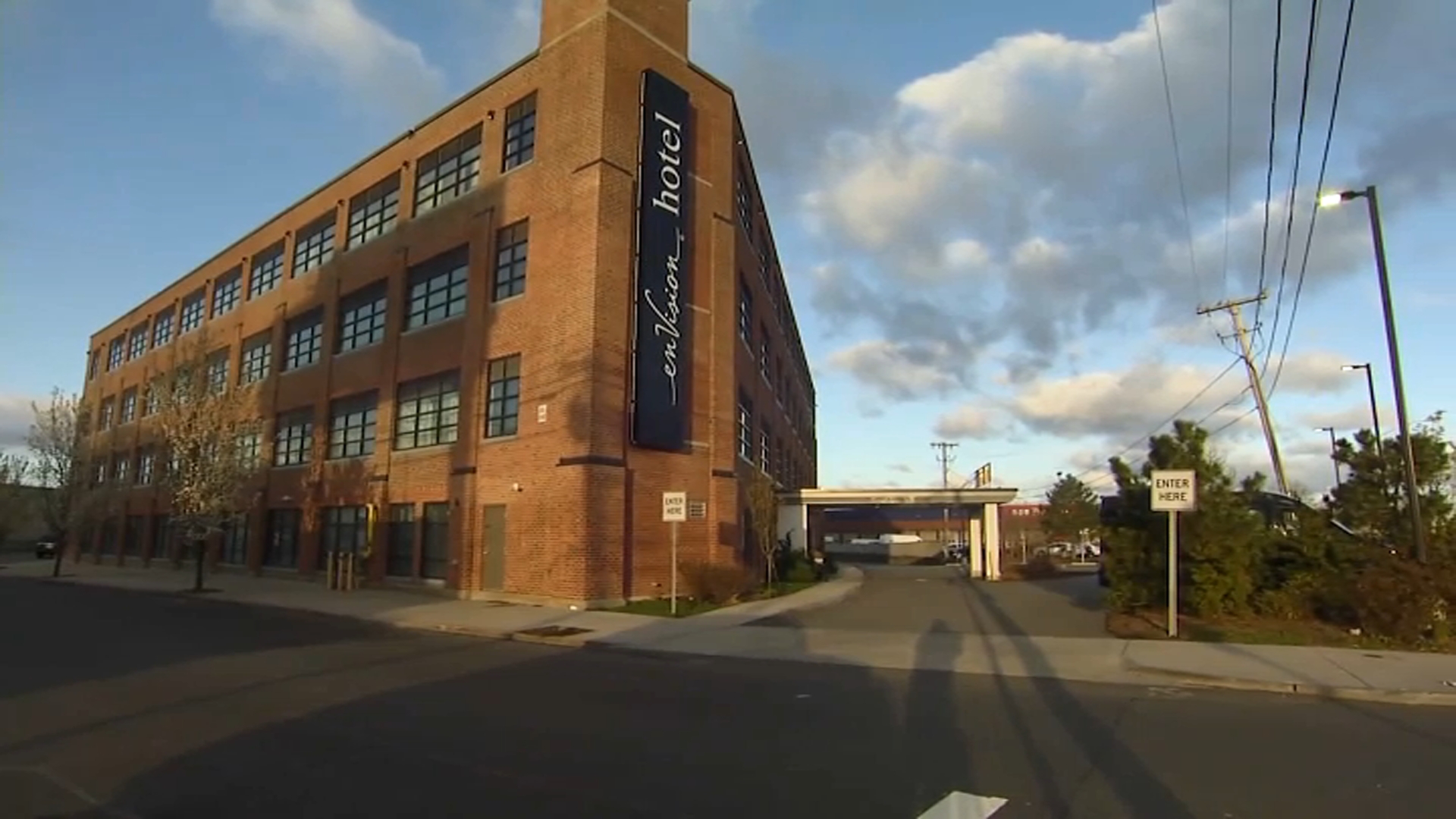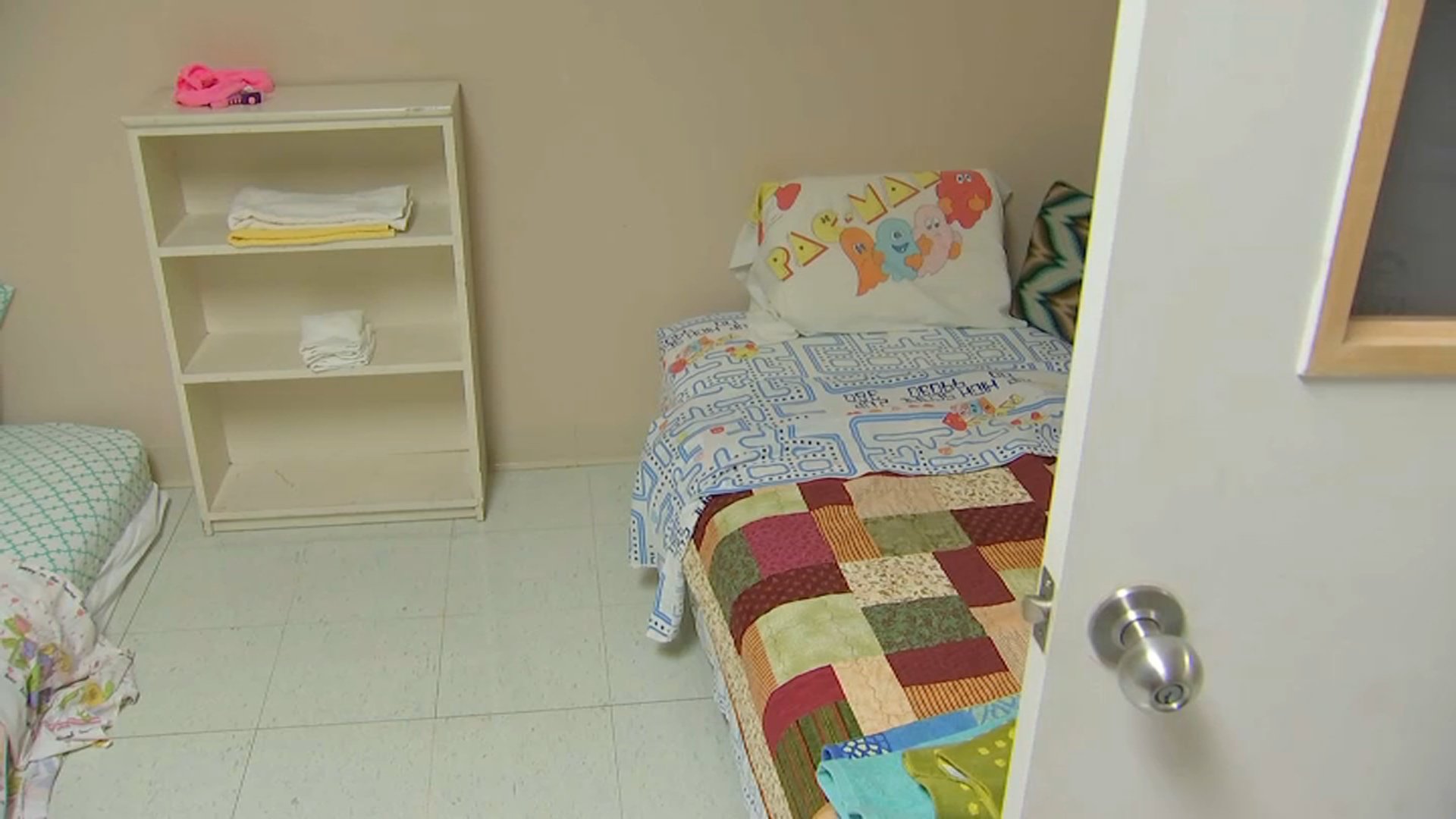
As the immigrant shelter crisis worsens in Massachusetts, state lawmakers pressed Lt. Gov. Kim Driscoll and other administration officials Thursday to provide more detailed information about the flow of migrants into their communities, including the volume of people seeking housing and the overall price tag to the commonwealth.
Grappling with rising costs to the emergency shelter system without an immediate solution in sight, the Healey administration might also be gearing up to ask the Legislature for more money, one Republican representative signaled to reporters.
WATCH ANYTIME FOR FREE
>Stream NBC10 Boston news for free, 24/7, wherever you are. |
In the closed-door meeting Thursday afternoon, representatives also aired their concerns over the federal government's inaction on expediting the monthslong work authorization process, which elected leaders say has prevented migrants from earning money to support themselves and their families.
"The communication has been less than desirable from all aspects down to the municipal level," Majority Leader Michael Moran told reporters after the meeting. "That's the frustration that a lot of our colleagues expressed, a number of them expressed, and the administration took some ownership of that. And they're committed to improving the communication lines, not just with the Legislature, but also with local municipal elected officials."
Get updates on what's happening in Boston to your inbox. Sign up for our >News Headlines newsletter.
On the first day of school in Milford, Moran said, migrant children "just showed up" without educators being notified.
"These are things that really can, you know, throw our municipal partners into a bit of disarray," Moran said.
Driscoll, joined by Health and Human Services Secretary Kate Walsh and Housing and Livable Communities Secretary Ed Augustus, updated representatives about the state's emergency shelter system and Gov. Maura Healey's activation of up to 250 National Guard members to help at emergency shelter hotels. Some Guard members will be on the ground starting next week, Driscoll said.
"At this point, we think that's sufficient, but like this whole process is one that is a bit iterative, so we'll call audibles as necessary, and we're not deploying the full 250 right at the start," Driscoll told reporters after the private meeting.
Some 6,271 families -- composed of more than 20,000 individuals -- are staying at emergency shelters as of Thursday morning, said Kevin Connor, a spokesperson for the Executive Office of Housing and Livable Communities. About one-third of that volume of families is new arrivals, Connor said.
Connor said 2,592 families are living in hotels and motels, which have been converted into emergency shelters, across more than 80 Massachusetts municipalities.
Get updates on what's happening in Boston to your inbox. Sign up for our News Headlines newsletter.
The Senate received a virtual briefing from the Healey administration later Thursday afternoon, a spokesperson for the governor said. Congressional offices and municipal offices were also being briefed, the spokesperson said.
Friday marks a month since Healey declared a state of emergency tied to the surge of migrants straining the commonwealth's emergency shelter system.
In a letter to U.S. Secretary of Homeland Security Alejandro Mayorkas, Healey had warned that Massachusetts cannot keep up with the "rapidly rising demand for shelter" despite spending $45 million each month on programs for families and creating shelter space.
Driscoll told reporters this is the third briefing she's had with House members, though some representatives, including Rep. Paul Donato, described this as the first such huddle with the administration.
House Speaker Ron Mariano was not at the briefing, though he was at his State House office for other meetings Thursday, a spokesperson for the Quincy Democrat said.
Ahead of the briefing, Donato said lawmakers wanted to understand the administration's work so far with immigrants in Massachusetts and "how we can as a legislative body help them and what we can do to encourage our communities to get involved." It's a similar plea Driscoll made last month, as she asked Bay Staters with an extra room or suite in their home to consider hosting families.
Driscoll said Thursday she outlined details on next steps in the migrant crisis, such as deploying National Guard members to assist with medical appointments and school registrations.
Rep. Peter Durant, who's vying for former Sen. Anne Gobi's vacant seat, said Driscoll's presentation lasted about 30 minutes and didn't adequately answer lawmakers' questions, including the cost of sheltering thousands of migrants and providing them with other state resources, such as public benefits.
Durant previously called on Healey to repeal Massachusetts' right-to-shelter law -- which entitles homeless families to emergency shelter -- that has been exacerbated by the influx of migrants coming from Central and South American countries, as well as Haiti.
"The lieutenant governor indicated that they would most likely be seeking a supplemental budget for the costs that were coming in, but there was no indication as to what that would be, when that supplemental budget would come," said Durant, who noted declining revenue collections. "We certainly had a surplus last year, and we'd like to have a surplus again, but this could eat that up very quickly."
Assistant Majority Leader Alice Peisch, speaking to reporters after the briefing, acknowledged that without federal help, Massachusetts will need to cover major costs tied to the migrant crisis, which could affect other state services.
Moran said representatives are expecting to get information on current costs, though he added expenses can vary by shelter and municipality.
"It's even more clear now, after that meeting, that migrant issues and immigration should fall correctly on Washington, D.C., and they need to step up and help, because as of right now, it's been fairly poor, their contributions to us," Moran said.



